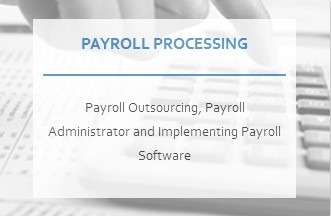
Yesterday afternoon my client suddenly called me, because one of the directors who had worked for my client was surprised that he did not pay taxes when he wanted to report taxes. Because the company provides a gross salary, according to the applicable tax rules, when someone leaves he or she will receive a tax refund. And my team provided data to the client that actually there was a tax return in May 2013, which maybe when he received his salary, it was actually bigger because there was a tax refund. He only realized when the end of the year suddenly underpaid.
Why is this happening, basically the assumption of tax deductions is a year's salary and reduced by PTKP (non-taxable income) which becomes PKP (taxable income) then multiplied by the rate of 5% (if less than 50 million), 15% (if less than 250 million ) 25% (if less than 500 million) and up to 30% (for taxable income of more than 500 million). The yearly tax is divided by 12 so that it becomes a tax that must be paid every month.
However, because the person concerned leaves, according to tax rules, his income will automatically only last until the last month of work and automatically the taxable income will be reduced from the original estimate, while the PTKP may be calculated in full, so that in the end there is a tax refund.
Thus, if someone moves to a new office, he will be calculated based on income starting to work until the end of the year so that the income is not a full year and may get a tax deduction in the amount of PTKP and multiplied by rates starting from 5%, 15% and so on. This results in lower monthly tax payments. The impact of PTKP, and calculations starting at 5%, 15% and so on in the two companies has a significant impact on those concerned, so that those concerned must be ready or willing to pay underpaid taxes, because actually from the first company there is a tax refund and from the second company the tax deduction lower.
For example, a single person (supervisor/manager) gets a salary of IDR 10,000,000 per month and is covered by social security with JKK & JKM premiums of 0.54% and JHT 2% and has worked for 6 months each in 2 companies. From each company, the tax deducted while working at each company is only Rp. 1,558,000 for 6 months, because in each company he gets taxable income of only around Rp. 31 million and less than Rp. 50 million a year, so he is only subject to a 5% tax rate. In fact, if one year is calculated, the person concerned has been subject to a 15% rate for taxable income above IDR 50 million, so when he reports PPh21 he has to pay tax in the amount of IDR 7,997,800. From each company, he was only deducted Rp. 3,117,600 (2*1,235,200), so he was still underpaid Rp. 4,880,200. Of course he will be surprised by the underpayment of this amount, and does not realize that so far the tax that has been deducted less is only Rp. 259,800 per month, while it should have been deducted Rp. 666,483 per month, so if accumulated a year it becomes Rp. 4,880,200.
How to avoid this, it's best if someone changes jobs, he immediately asks for 1721A1 from the old company he worked for, so that the new company can calculate the net income and taxes that have been withheld in their monthly tax deductions. Thus the income and taxes calculated will be in accordance with reality, although the consequence will be a slightly larger tax deduction, because the tax returns from the old company are calculated withholding taxes at the new company, but this avoids underpayment at the end of the year.
Hopefully this information is useful, on another occasion I will explain the impact of working in a company with a net salary on underpayment of taxes. Congratulations on carrying out reporting obligations, as a good taxpayer








